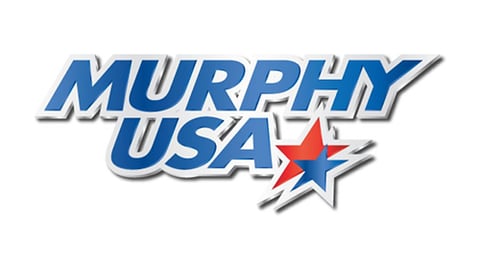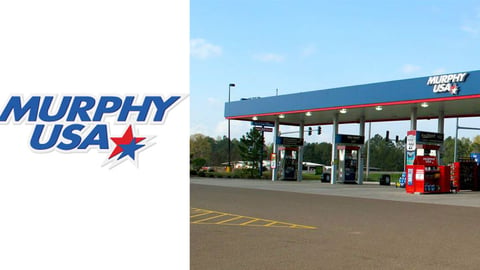Murphy USA Pinpoints Three Components for Success After Challenging Q1
EL DORADO, Ark. — Now that the first quarter — traditionally the weakest in the channel — is behind it, Murphy USA Inc. is focusing on its core strategy as it marches through 2018.
"We all recognize [the first quarter] is the most challenging quarter of the year, and last year truly brought that point home," President and CEO Andrew Clyde explained during the company's first-quarter earnings call on May 2. "We also know that Q1 performance is the weakest predictor of full-year performance, as 2017 also proved out.
"So, when looking at first-quarter 2018 performance, I want to highlight three components of our strategy that are relevant to both our financial results and our long-term competitive positioning in the industry," he said.
Those three components are:
Resilient Fuel Business: From a year-over-year perspective, Murphy USA saw higher all-in margins on a cents-per-gallon basis, 11.4 cents per gallon vs. 10.1 cents per gallon, and fuel contribution dollars of $114.6 million vs. $102.7 million in the first quarter of 2017.
The increase was largely driven by results from higher year-over-year contribution from the company's product supply and wholesale business, including RINS, partially offset by lower retail margins and volumes.
"From a within-the-quarter perspective, January stood out as an exceptionally poor month, which has already been discussed by multiple retailers and analysts. Year-over-year volumes were down significantly because of lower traffic as fewer vehicle miles were driven," Clyde said. "On the other hand, fuel volumes were just under 100 percent of the prior year in the month of March where there were a few externalities."
Performance Improvement Initiatives: Through continued efficiencies from its labor model and store supply and maintenance costs, along with improvements to its merchandise business, Murphy USA reduced its fuel breakeven metric by nearly 50 basis points to 14.7 cents per gallon from 19.5 cents per gallon in the first quarter of last year.
"We continue to field questions from investors who ask whether there are continued opportunities to extract further potential from our stores. And the answer remains an unequivocal yes, as we once again show this quarter," Clyde said.
"For instance, we just launched scan-based trading for some items in our general merchandise category in the center of the store. This initiative strengthens our product mix, improves our margins, eliminates shrink, further reduces store labor as the vendor manages the merchandise activities, reduces working capital and eliminates inventory complexity both at the store level and back-office functions, resulting in lower [selling, general and administrative] expenses.
This initiative continues the trend of what Murphy USA has become distinctive for: growing its merchandise contribution while lowering costs at the same time, he added.
Disciplined Approach to Capital Allocation: According to the chief executive, with the downbeat reports on the convenience channel coming out of the 2017 NACS Show, and with all the capital costs and efforts being invested in foodservice models, he is not surprised to see many firms worried about their profit outlook "because not everyone is going to execute that model at the highest level needed to succeed.
"Consequently, we continue to see more evidence of private companies attempting to exit the business ahead of looming capital requirements around EMV compliance in the hopes of getting a high multiple. The task to transform their legacy networks is indeed daunting," Clyde said.
That being said, he assured that Murphy USA sees opportunities in the industry and remains upbeat on its potential.
"Yes, the business will continue to face a variety of headwinds, but when we look at our EBITDA per store which was among the highest of our publicly traded peers and 1.5 times to two times higher than some of the companies we've seen on the market, we see opportunity," he said.
Clyde also reported that Murphy USA redirected a one-time cash benefit toward share repurchase. "We remain confident in our ability to make our business more competitive over the long-term," he said. "And while others are looking to sell, we remain active buyers in the business ... which is why we repurchased close to 1 million shares in the quarter."
According to Clyde, rising crude prices in April may set the stage for another challenging environment in the second quarter, which could make for a larger falloff in prices and result in a period of above-normal margins, volume and contribution for the back half of the year.
"The point is, the industry will continue to have highs and lows, disruptions and dislocations, externalities and headwinds, and periods of compressed retail fuel margins that all companies will have to endure," he said. "In our view, the productivity enhancements and associated innovation we continue to generate are the greatest source of value for any large-scale mature retail operator and we've invested wisely to develop our capabilities and improve our margin and cost structures that enable us to be agile and resilient in any environment, which will ultimately benefit our long-term investors."
Q1 2018 Financials
For the first quarter of 2018, Murphy USA reported revenue of $3.2 billion vs. $3 billion in the same period of 2017. This was largely attributable to higher product prices and, to a lesser extent, higher merchandise sales, according to Mindy West, executive vice president and chief financial officer.
Average retail gasoline prices during the quarter were $2.34 per gallon vs $2.11 in 2017.
Adjusted EBITDA was $45.1 million in the first quarter compared to $30.3 million in the same quarter last year. Net income was $39.3 million compared to a net a loss of $3 million in first-quarter 2017, due to a $35.3-million after-tax benefit from the settlement of damages due to the Deepwater Horizon oil spill in 2010, said West.
Merchandise contribution dollars grew 3 percent during the quarter to $91.5 million on average unit margins of 16.1 percent, vs. 15.7 percent unit margins in the prior-year quarter.
El Dorado-based Murphy USA has more than 1,440 stations located primarily in the Southwest, Southeast and Midwest United States. The company and its team of nearly 10,000 employees serve an estimated 1.6 million customers each day through its network of retail gasoline stations in 26 states. The majority of Murphy USA's sites are located in close proximity to Walmart stores.





